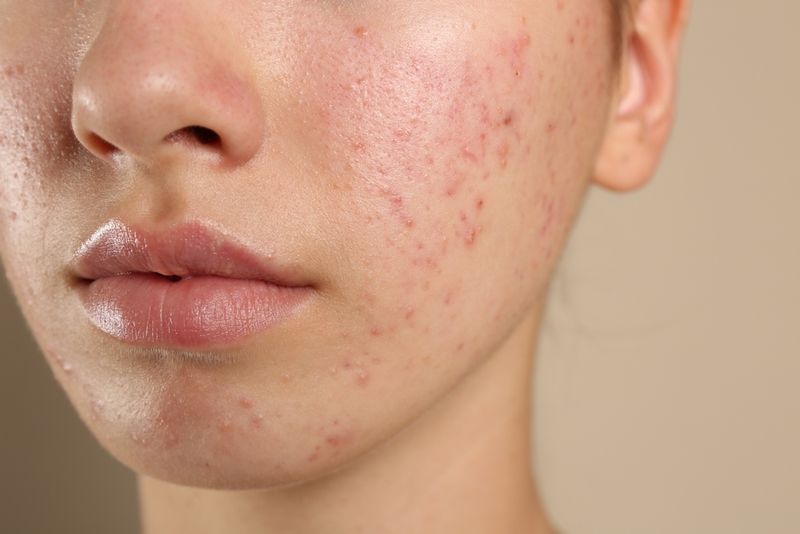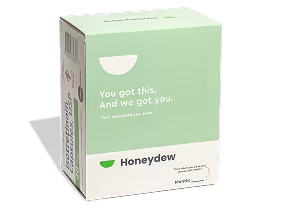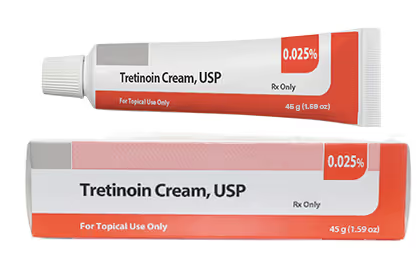Understanding Hydrocortisone: A Cornerstone of Dermatological Treatment
For millions dealing with the persistent discomfort of inflammatory skin conditions, finding effective relief is a top priority. Among the most widely recognized and prescribed treatments is hydrocortisone. While many know it as a common ingredient in over-the-counter anti-itch creams, its role in dermatology is far more significant. Hydrocortisone is a type of corticosteroid, a class of medications designed to mimic cortisol, a natural hormone produced by the adrenal glands that helps regulate inflammation in the body. It serves as a foundational tool for managing a variety of skin ailments, most notably eczema and psoriasis.
The primary function of topical hydrocortisone is to calm the skin's overactive inflammatory response. When applied to affected areas, it works on a cellular level to suppress the chemicals that cause inflammation, redness, and swelling. It also has a vasoconstrictive effect, meaning it narrows the blood vessels in the skin, which helps reduce redness and fluid buildup. By interrupting these processes, hydrocortisone effectively breaks the debilitating itch-scratch cycle that defines many skin conditions, providing both immediate relief and an opportunity for the skin to begin healing. Its reliability and long history of use have made it an indispensable part of modern dermatological care.
Hydrocortisone's Role in Treating Eczema (Atopic Dermatitis)
Eczema, or atopic dermatitis, is a chronic condition characterized by dry, sensitive skin prone to intense itchiness and inflammation. It results from a combination of genetic factors and a compromised skin barrier, which allows irritants and allergens to penetrate more easily, triggering an immune response. This leads to the hallmark red, inflamed, and sometimes weeping patches of skin. For those living with eczema, the constant itch is not just a minor annoyance; it can disrupt sleep, impact mental health, and significantly reduce quality of life.
How Hydrocortisone Provides Eczema Relief
Hydrocortisone addresses the core symptoms of an eczema flare-up directly. Its powerful anti-inflammatory properties work to calm the underlying immune response that causes the skin to become red and swollen. By reducing this inflammation, it also alleviates the associated intense itch, or pruritus. This is perhaps its most crucial benefit, as it helps break the itch-scratch cycle. When you scratch, you further damage the skin barrier, which in turn worsens inflammation and itching, creating a vicious loop. By providing relief from the itch, hydrocortisone allows you to stop scratching, giving your skin the chance to heal and rebuild its protective barrier.
At Honeydew, our licensed providers evaluate the specific nature of your eczema to determine if hydrocortisone is the right starting point, ensuring your treatment is tailored to your skin's unique needs.
Choosing the Right Formulation and Strength
Hydrocortisone is not a one-size-fits-all treatment. It comes in various strengths and formulations, and choosing the correct one is key to achieving the best results while minimizing potential side effects. Strengths range from low-potency over-the-counter (OTC) options, such as 0.5% or 1% hydrocortisone, to more potent prescription versions. OTC creams are suitable for very mild, occasional flare-ups, while prescription-strength hydrocortisone is necessary for managing more moderate symptoms.
The formulation—whether it's a cream, ointment, lotion, or gel—also matters. Each has different properties suited for different types of skin and eczema presentations:
- Ointments: These are oil-based and have a thick, greasy texture. They are highly moisturizing and form a protective barrier on the skin, making them ideal for very dry, scaly, or thickened patches of eczema.
- Creams: Creams are a mix of oil and water, making them less greasy than ointments. They are easily absorbed and are a good choice for weeping or "wet" eczema lesions, as they have a slight drying effect.
- Lotions: Lotions are thinner than creams and contain more water. They are easy to spread over large or hairy areas of the body, like the chest or back.
- Gels: These are semi-solid, jelly-like substances that can be particularly effective for application on the scalp.
An expert provider can help you navigate these choices. If you find that standard treatments aren't working, Honeydew specializes in creating custom-compounded medications, which can combine active ingredients into a base that is perfectly suited for your skin type and condition.
Taming Psoriasis with Hydrocortisone
Psoriasis is a chronic autoimmune condition that accelerates the life cycle of skin cells. Instead of turning over in weeks, skin cells in people with psoriasis mature and rise to the surface in a matter of days. Because the body can't shed these excess cells quickly enough, they pile up on the surface, forming the thick, red, scaly patches known as plaques. These plaques can be itchy, sore, and sometimes painful.
How Hydrocortisone Manages Psoriasis Symptoms
While hydrocortisone is generally considered a mild corticosteroid, it plays a valuable role in a comprehensive psoriasis management plan. Its anti-inflammatory action helps reduce the redness and irritation associated with psoriasis plaques. Furthermore, corticosteroids like hydrocortisone can help slow down the rapid skin cell production that is the hallmark of the condition. By mitigating these two core processes, it can help make plaques less raised, less red, and less uncomfortable.
Hydrocortisone is particularly useful for treating psoriasis in sensitive areas where stronger steroids could cause side effects like skin thinning. This includes the face, groin, and areas with skin folds (intertriginous areas). For mild psoriasis, hydrocortisone might be sufficient on its own. For more moderate to severe cases, it is often used in conjunction with other, more potent therapies to manage specific patches or to use during breaks from stronger medications.
If you're struggling with persistent psoriasis, know that more powerful options are available. For many of our patients, cutting-edge biologic treatments like Skyrizi or Tremfya offer more comprehensive relief by targeting the specific immune pathways that drive the condition.
How to Use Hydrocortisone Effectively and Safely
To get the most benefit from hydrocortisone and minimize risks, it's essential to use it correctly. Proper application and adherence to your provider's instructions are paramount for safe and effective treatment.
Application Best Practices
- Start with Clean Skin: Gently wash and pat dry the affected area before application. This ensures the medication can be absorbed properly without being blocked by dirt or oils.
- Apply a Thin Layer: You only need a small amount. Squeeze out a quantity sufficient to cover the affected skin in a thin, even film. Using too much does not make it work better and can increase the risk of side effects.
- Apply Only to Affected Areas: Be precise. Do not apply hydrocortisone to healthy, unaffected skin.
- Rub it in Gently: Massage the cream or ointment into the skin until it has been absorbed.
- Wash Your Hands: After application, wash your hands thoroughly to avoid accidentally transferring the medication to other parts of your body, like your eyes.
Typically, hydrocortisone is applied once or twice daily. Your dermatology provider will give you specific instructions based on the strength of the medication and the severity of your condition. Honeydew's online platform makes it easy to track your progress with photos, allowing your care team to monitor your skin's response and adjust your treatment plan as needed for optimal results.
Understanding Potency and Duration of Use
Corticosteroids are categorized by potency, from mild (like OTC hydrocortisone) to very high. It is crucial to use a steroid of the appropriate strength for the specific body part and for the shortest duration necessary to clear the flare-up. Long-term, uninterrupted use of topical steroids, especially high-potency ones, can lead to side effects such as:
- Skin Atrophy: Thinning of the skin, making it fragile and prone to tearing.
- Stretch Marks (Striae): Permanent marks that can appear in the treated area.
- Perioral Dermatitis: A rash of small red bumps that can form around the mouth.
- Tachyphylaxis: A phenomenon where the skin becomes less responsive to the medication over time, reducing its effectiveness.
To avoid these issues, providers often recommend using the medication to get a flare-up under control and then stopping or reducing the frequency of use. Our providers at Honeydew focus on creating treatment plans that get you better safely, managing your prescriptions and providing ongoing support to ensure you use medications effectively without unnecessary risk.
When Hydrocortisone Isn't Enough: Exploring Next-Step Treatments
Hydrocortisone is an excellent tool, but for many with persistent or severe eczema and psoriasis, it is only one piece of the puzzle. When symptoms don't respond adequately to mild steroids, or if the condition is widespread, it's time to consider other options. A personalized treatment plan is essential, because what works for one person may not work for another.
Advanced Options for Persistent Eczema
If your eczema remains stubborn, your provider may recommend moving to a stronger treatment. This could include:
- More Potent Topical Steroids: Medications like Triamcinolone or Clobetasol offer greater anti-inflammatory power for more severe flare-ups. These require careful medical supervision.
- Topical Calcineurin Inhibitors (TCIs): These are non-steroidal prescription creams and ointments, such as Tacrolimus (Protopic) and pimecrolimus (Elidel). They are excellent for sensitive areas like the face and eyelids and can be used for longer periods without the risk of skin thinning.
- Biologic Injections: For moderate-to-severe atopic dermatitis that doesn't respond to topical treatments, revolutionary biologic medications like Dupixent target the specific immune system proteins that cause eczema's inflammation, offering profound relief from the inside out.
Stepping Up Psoriasis Treatment
For psoriasis that covers large areas of the body or significantly impacts quality of life, topical treatments alone are often insufficient. Advanced therapies include:
- Phototherapy: Medically supervised exposure to ultraviolet (UV) light can help slow skin cell growth.
- Systemic Medications: Oral or injected drugs like methotrexate or cyclosporine work throughout the body to suppress the overactive immune system.
- Biologics: As with eczema, biologics have transformed psoriasis care. Drugs like Skyrizi and Tremfya offer targeted, highly effective treatment for moderate-to-severe plaque psoriasis with fewer side effects than older systemic drugs.
If you're unsatisfied with your current treatment, Honeydew's expert providers can manage, adjust, and recommend these more advanced treatments entirely online, ensuring you find a plan that gets you the clear skin you're looking for.
Get Expert Eczema and Psoriasis Care with Honeydew
Living with the chronic inflammation, itch, and frustration of eczema or psoriasis can feel like a relentless cycle. We understand how disheartening it can be when over-the-counter creams fall short or when prescribed treatments stop being effective. At Honeydew, we're on a mission to make expert dermatological care more accessible and personalized, so you can finally find a path to lasting relief.
We believe that effective skin care is not about a single product, but about a comprehensive, evolving strategy. Our 100% online platform connects you with licensed dermatology providers—including board-certified dermatologists, nurse practitioners, and physician assistants—who specialize in treating complex conditions like acne, eczema, and psoriasis. Your journey begins with a video consultation where your provider takes the time to understand your skin history, your lifestyle, and your goals.
From there, we build a treatment plan that is uniquely yours. This may start with a specific strength of hydrocortisone, but it doesn't end there. We have access to the full spectrum of FDA-approved treatments, from powerful topical agents like Tretinoin for acne to cutting-edge biologics for psoriasis and eczema. If standard formulations don't suit your skin, we can even create custom-compounded medications tailored to your needs. Our goal is always to maximize your results while minimizing potential side effects.
What truly sets Honeydew apart is our commitment to ongoing support. Your membership includes unlimited consultations and around-the-clock access to your dedicated care team. Using our online tools, you can easily track your progress with photos and message your provider with any questions or concerns. This continuous relationship allows us to make real-time adjustments to your treatment plan, ensuring that as your skin changes, so does your care. Stop the cycle of trial-and-error and start a partnership focused on your skin's health. Get started with Honeydew today and take the first step towards feeling confident and comfortable in your skin again.

.webp)





















